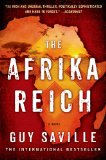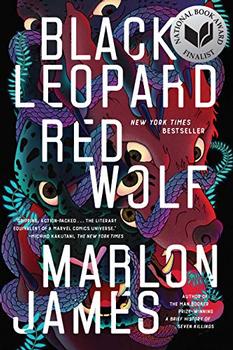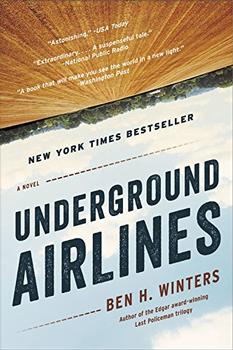Summary | Excerpt | Reviews | Beyond the book | Read-Alikes | Genres & Themes | Author Bio

History has many turning points, some so subtle as to be unnoticeable, others so clear as to be signposts around which the march through time pivots. The Battle of Dunkirk is one of these points. Had it gone another way, the Allies would have never coalesced into an anti-Axis alliance, and World War II would have been over – and had a very different outcome – before it really even started. Works of alternate history explore these world events and impress upon us how important they have been. They allow us to see such turning points in a new light, and help us understand that there are times and places upon which the course of history really does depend.
In The Afrika Reich by Guy Saville, Burton Cole is one of the few survivors of what is called the "Dunkirk Massacre." He, along with his crew, are dispatched to Nazi-dominated Africa in order to kill Walter Hochburg, the bloodthirsty, yet oddly cultured Governor-General of the German colony of Kongo. Cole has a melange of reasons both personal and impersonal for wanting to kill Hochburg. During the mission, though, something goes wrong, and Cole and his team are forced to flee. Cole and his former Foreign Legion commander and friend, Patrick, find themselves in the middle of Nazi-occupied Africa with no way out but to wade through a sea of Nazi soldiers – leaving blood, dead bodies, and explosions along the way. In addition to following Cole and Patrick's attempt to escape from the Nazis, we also follow Neliah, a charismatic young woman and a mixed-race member of the Angolan resistance with her mind set on her own goals – protecting her sister, defending her country, and avenging her father. As a person of color, Neliah is also at particular risk of forced relocation to Muspel (the Sahara), under Nazi policy.
The Afrika Reich is been meticulously researched, which raises it a significant cut above the average airport thriller. In addition, the seamlessness of the alternate history is remarkable, especially given that the book does not rely on long swaths of exposition, but allows the reader (who Saville clearly imagines as being reasonably well-versed in various aspects of European history and culture) to complete that history from events shown, rather than told. One example is the way Saville extends and expands on the Nazi mythos, and how that manifests in the vocabulary (using 'Germania' for Berlin) scattered throughout. Clearly taking some inspiration from better action-thriller movies, the pace moves at adrenaline-fueled speed as Cole, Patrick and Neliah fight their way from calamity to disaster to explosion at breakneck speed. Though the pacing is overwhelming in places, in general, it generates tension and a feeling of being on the edge of the seat.
This book clearly wants to blend the cerebral and philosophical with the physicality of an action-adventure. This is a tall order to handle and it is little surprise that the book makes this blend in a less-than-seamless manner. The combination of contemplation (Patrick and Cole's individual motivations for taking the job) and nonstop action (the escape from Africa) seems just a touch forced. However, The Afrika Reich is a surprisingly philosophical and undeniably action-filled read. I look forward to reading the two planned sequels.
![]() This review was originally published in The BookBrowse Review in March 2013, and has been updated for the
February 2015 edition.
Click here to go to this issue.
This review was originally published in The BookBrowse Review in March 2013, and has been updated for the
February 2015 edition.
Click here to go to this issue.

If you liked The Afrika Reich, try these:

by Marlon James
Published 2020
In the stunning first novel in Marlon James's Dark Star trilogy, myth, fantasy, and history come together to explore what happens when a mercenary is hired to find a missing child.

by Ben H. Winters
Published 2017
It is the present-day, and the world is as we know it: smartphones, social networking and Happy Meals. Save for one thing: the Civil War never occurred.
Your guide toexceptional books
BookBrowse seeks out and recommends the best in contemporary fiction and nonfiction—books that not only engage and entertain but also deepen our understanding of ourselves and the world around us.